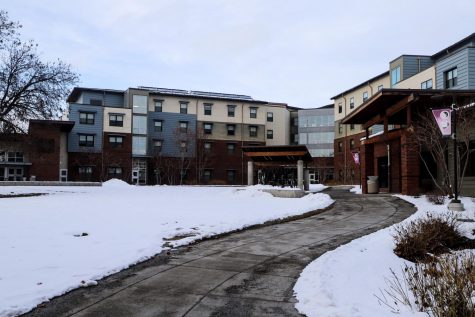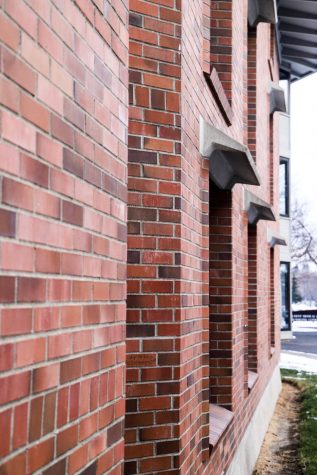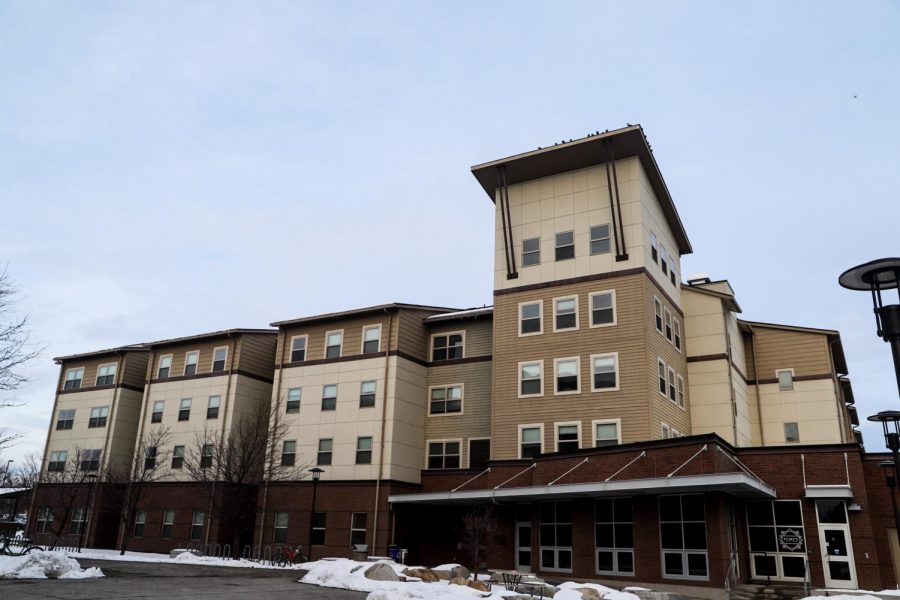The secret life of an RA
March 2, 2021
If you’ve lived on campus, then you’re familiar with the role of the dorm Resident Assistants (RAs). These students are responsible for balancing classes and building relationships with residents and coworkers.
As students live on campus and interact with RAs, some students might not know what happens behind the scenes as an RA.
Under the employment contract RAs must sign, current RAs aren’t allowed to speak with student media. The Observer spoke with five RAs to learn about their struggles with management, feeling unheard and even losing their jobs.
Tricia Rabel
Rabel has currently been the executive director of housing and residence life for two and a half years. She has been with CWU for six years.
“We value the students. This is probably one of the hardest student jobs available and they continue to amaze me,” Rabel said. “They are the best of the best.”
Rabel said she found it concerning that RAs have experienced the feeling of being easily replaced. She said that being and feeling heard can make or break the job.
“Bad experiences are typically individual. The RA might have an issue with a resident and that makes them struggle and gives them a bad experience,” Rabel said. “Being valued and heard, connecting with residents and seeing the bigger picture that they are helping paint, leads to the best experiences.”

Anonymous RA
One RA for almost two years, who wished to remain anonymous, said it was challenging to work in a hall with upperclassmen. The RA said they left their position in Davies Hall after only a few weeks.
“I felt as if nobody was listening to me and wanted to help me,” they said. “I brought a list of concerns to my boss who basically told me that they couldn’t figure it out and, basically told me that if I couldn’t handle it then I could leave and they could find someone else.”
The anonymous RA said in their job, they felt expendable and easily replaceable.
Joshua Peterson
Peterson was an RA for about a year and a half and said he had a different experience being an RA.
“I actually really enjoyed my time as an RA. I came out of my comfort zone and ended up loving it,” Peterson said. “It’s easy work, plus I get to help people, which I love.”
Peterson said he didn’t ask for guidance from his boss very often because he relied on his knowledge and common sense to solve problems. He said that if people have a bad experience with housing, it’s usually either the social aspect or the workload. Peterson said that he ran into very few challenges in his time of being an RA.
“I didn’t get good training. You get a book that tells you how to deal with situations. What the book suggested didn’t really make sense because with every problem, there are different elements that go into it,” Peterson said. “Not every situation can be addressed ‘by-the-book’ because every problem is unique and different.”
Peterson said that in order for an RA to plan an event that a college student would want to do, the RA would have to talk to countless different committees.
“You have to jump through 50 hoops for a small budget event. Most of the time when an RA wants to plan a fun event that college kids would want to do, a committee will reject it,” Peterson said.
Jazmyne Wardman
Wardman was an RA for almost three years and worked in two different residence halls. She served as a manager during her final year.
Wardman attested to the struggles with housing. She wanted to make her manager position her internship. She met with the director telling them that being manager was the plan for her graduation requirement and that she wouldn’t include any personal information in the documents that she had to submit. She said that the director just kept saying how much paperwork goes into being an RA and never really wanted to support her internship decision.
Despite the struggles, Wardman said she enjoyed aspects of the job, especially writing personalized notes to her residents.
“My residents find it comforting knowing that there are people that are reaching out and want them to be successful,” Wardman said.
Wardman said the shift into COVID-19 left her feeling different. She said instead of telling residents to be quiet during quiet hours, she told residents to not be in the lounge or there were too many people present in a dorm room. Instead of building connections with her residents, she had to focus on not getting sick and making sure all of her residents were following the CDC
guidelines at all times.
“Many people believe that we are paid to be snitches. That is not the case. We are meant to ensure that the residents are being safe,” Wardman said. “We want to be someone that, specifically first-year students, can be relied on for help no matter the issue.”

Anonymous RA
Another student, who preferred to stay anonymous, was an RA for two quarters and worked in one hall.
“Housing sugarcoats everything in a job that requires bluntness. You get a bunch of different answers from all different people,” the former RA said. “No matter what answer you go with, you’ll always get into trouble from someone about it.”
The source said communication is a big issue within housing. The RAs report to their Residence Hall Coordinator (RHC), and they report to the housing department. This RA said that the uppers in housing tend to dismiss issues that the RAs bring to them.
Madison Stamey
Stamey is a 2019 alumna and was an RA in Sparks Hall. Stamey said that the job is listed as “part-time,” but it doesn’t feel that way with the amount of work that goes into being an RA. Stamey said that there were lots of regulations to follow on a normal week and even more if they wanted an evening out.
“This job is very time-consuming and, to those that are looking to become an RA, you should ask yourself if you are ready for the balance,” Stamey said. “The balance includes balancing classes, building relationships with residents, writing reports and doing all of the other RA-related paperwork. It can be a lot sometimes.”
She urges people to be aware of what you tell people, friends or not.
“You never know who might be saying things about you behind your back or where that gossip could travel to. You could very easily lose your job over a rumor,” Stamey said.
Stamey said she doesn’t regret becoming an RA. She said she met many great friends here and it was hard for her to leave them all behind.
“Being an RA is about being a mentor and/or a resource for students, mainly first-years. Something that I liked to do was go to dinner with the staff and try to get residents to join us. We were big on building relationships with residents,” Stamey said. “We go through so much training so that we can deal with all kinds of situations that residents might be going through and help them through it.”


